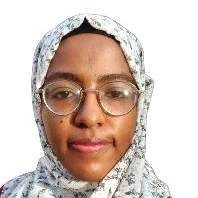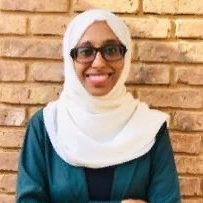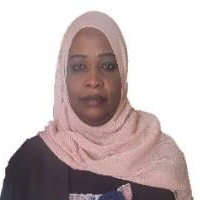International Journal of Engineering and Manufacturing (IJEM)
IJEM Vol. 13, No. 1, 8 Feb. 2023
Cover page and Table of Contents: PDF (size: 988KB)
An Innovative Leukemia Detection System using Blood Samples via a Microscopic Accessory
Full Text (PDF, 988KB), PP.23-32
Views: 0 Downloads: 0
Author(s)
Index Terms
Blood samples, Marker-controlled watershed, overlapping, SVM, Raspberry Pi.
Abstract
Leukemic patients are in a rapid increase. Hence, the use of microscopic images of blood samples through visual inspection to identify blood disorders has increased, opening the door for computerized techniques for detecting leukemia. This project applies computer vision techniques to increase the accuracy and speed of detection from periph-eral blood. It also enhances visualization by providing an appropriate supplement to traditional microscopy. A micro-computer (Raspberry Pi) was well programmed in Python for analyzing images with the help of a Raspberry Pi camera and a touch screen as an alternative to the eyepiece. To achieve diversity and seek for more accuracy, image datasets for this project were obtained from various resources. These datasets were then analyzed through image processing techniques to detect leukemia cells. This detection process involves resizing cells to a standard size, noise removal by linear scaling filter, global-local contrast enhancement, segmentation of white blood cells (WBCs) using marker-controlled watershed algorithm, overlapping detection and separation using watershed and k-means clustering algorithms, and extraction with selection of the most relevant features from cells. These features were then imported into the Support Vector Machine (SVM) model which resulted in an accuracy of 93.2773%. A standalone desktop application with a suitable graphical user interface (GUI) was implemented. It was then uploaded into the Raspberry Pi, some code lines were rewritten for dealing with the camera, the hardware was designed and implemented, and then formal experiments were conducted resulting in the detection of leukemia in 5 samples out of 6. This implies that precise detection can be implemented with different data taken in various imaging conditions.
Cite This Paper
Azza M. Bin Aof, Ethar A. Awad, Sarah R. Omer, Banazier A. Ibraheem, Zeinab A. Mustafa, "An Innovative Leukemia Detection System using Blood Samples via a Microscopic Accessory", International Journal of Engineering and Manufacturing (IJEM), Vol.13, No.1, pp. 23-32, 2023. DOI:10.5815/ijem.2023.01.03
Reference
[1]Street, W. 2020. Cancer Facts & Figures 2020. Atlanta, GA: American Cancer Society Inc.; 1930:76. [Online] Available from: https://www.cancer.org/content/dam/cancer-org/research/cancer-facts-and-statistics/annual-cancer-facts-and-figures/2020/cancer-facts-and-figures-2020.pdf [Accessed: Sep. 25, 2020].
[2]American Society of Hematology. “Blood Disorders - Hematology.org”. [Online] Available from: https://www.hematology.org/education/patients/blood-disorders [Accessed: Sep. 26, 2020].
[3]American Society of Hematology. “Leukemia - Hematology.org”. [Online] Available from: https://www.hematology.org/education/patients/blood-cancers/leukemia [Accessed: Sep. 26, 2020].
[4]Chin, S., Srisukkham, W., et al. Oct, 2015. “An Intelligent Decision Support System for Leukaemia Diagnosis using Microscopic Blood Images”. Scientific Reports, vol. 5 (1). DOI: 10.1038/srep14938.
[5]P. G. F. Desai & G. Shet, “Detection and Classification of Leukaemia using Artificial Neural Network,” IJRASET, vol. 6, no. 6, pp. 1316–1321, Jun. 2018. DOI: 10.22214/ijraset.2018.6192.
[6]Mangaiyarkarasi, N., & Geethabai, P. Mar, 2018. “Detection of Leukemia in Human Blood Samples”. International Journal of Advanced Scientific Research & Development (IJASRD), vol. 5 (1): 323 – 330.
[7]A. El Allaoui, “Medical Image Segmentation by MarkerControlled Watershed and Mathematical Morphology,” IJMA, vol. 4, no. 3, pp. 1–9, Jun. 2012. DOI: 10.5121/ijma.2012.4301.
[8]Jagadev, P. & Virani, H.G. “Detection of leukemia and its types using image processing and machine learning”. IEEE Interna-tional Conference on Trends in Electronics and Informatics (ICEI), India, May, 2017: 522–526. DOI: 10.1109/ICOEI.2017.8300983.
[9]Shi Na,Liu Xumin, Guan Yong. “Research on K-means clustering algorithm: An improved k-means clustering algorithm,” IEEE Third International Symposium on Intelligent Information Technology and Security Informatics (IITSI), China, April, 2010.
[10]P.Vaghela, H., Modi, H., Pandya, M. & Potdar, M.B. Nov, 2015. “Leukemia detection using digital image processing techniques”. International Journal of Applied Information Systems (IJAIS), vol. 10 (1): 43-51. DOI: 10.5120/ijais2015451461.
[11]Ghane, N., Vard, A., Talebi, A. & Nematollahi, P. Jul, 2017, “Segmentation of white blood cells from microscopic images using a novel combination of K-means clustering and modified watershed algorithm”. Journal of Medical Signals & Sensors, vol. 7: 92-101. DOI: 10.4103/2228-7477.205503.
[12]Somorjeet, S., Tangkeshwar, Th., Gourakishwar, N. & Mamata, H. Sep, 2012. “Global-local contrast enhancement.” IJCA, vol. 54 (10): 7-8. DOI: 10.5120/8600-2365.
[13]S. Kumar, P. Kumar, M. Gupta, and A. K. Nagawat, “Performance Comparison of Median and Wiener Filter in Image De-noising,” IJCA, vol. 12, no. 4, pp. 27–31, Dec. 2010. DOI: 10.5120/1664-2241.
[14]A., “A Comprehensive Method for Image Contrast Enhancement Based on Global –Local Contrast and Local Standard Deviation,” IJRET, vol. 03, no. 08, pp. 413–416, Aug. 2014. DOI: 10.15623/ijret.2014.0308064.
[15]Yadav, C., Zele, S., Patil, T., Bombadi, V. & Chaudhari, T. Mar, 2018. “Automatic Blood Cancer Detection Using Image Pro-cessin1g”. International Journal of Recent Trends in Engineering & Research (IJRTER), vol. 4 (3).
[16]R. Berwick, “An Idiot’s guide to Support vector machines (SVMs),” p. 28.




